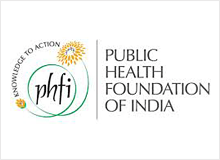
Projects
-

Improving health outcome through workplace education for 12,000 garment workers
Category: HIV & AIDS
Client: Bangalore Medical Services Trust & Research Institute(BMST)
BMST is a health services and research institution of the Rotary Club of Bengaluru and TTK group of companies, registered as a Public Charitable Trust in February 1984. BMST has unique services like a Stem-Cell Registry, in addition to blood banking and transfusion services, the Transplant Immunology Laboratory and community health programme.
As part of the community services, BMST has been implementing "Nammagaagi Naave”, a collaborative, participative action research programme supported under the Corporate Social Responsibility (CSR) of a few garment companies. The aim of this is to improve health outcomes of worker populations through awareness creation and individual and collective responsibilities to reduce gender discrimination, gender-based violence, alcohol abuse and HIV vulnerabilities, besides better health-seeking behaviour related to sexual and reproductive health.
Mahiti built a mobile phone based survey/feedback system for “Namagaagi Naave” - covering 12,000 garment workers in Bangalore. The IVRS-based research helped BMST improve their interactions with communities who were identified at high-risk of contracting HIV and led the factories to improving workplace education. This project has won global recognition for its innovative use of technology in addressing critical social problems. Know More
Duration: Since September 2010 (on-going)

National Integrated Biological and Behavioural Surveillance (IBBS) programme of the National AIDS Control Organisation (NACO)
Category: HIV & AIDS
Client: Public Health Foundation of India (PHFI)
PHFI is a public private initiative set up in 2006, for strengthening training, research and policy development in the context of public health in India. It focuses on broad dimensions of public health that encompass promotive, preventive and therapeutic services. PHFI’s vision is to strengthen India’s institutional and systems capability in public health and provide knowledge to achieve better health outcomes for all.
The project IBBS - under the auspices of NACO, Ministry of Health and Family Welfare, Govt of India – tracks HIV-high-risk population throughout India.
Mahiti was contracted by PHFI to be the Technology Partner for NACO and other stakeholders of IBBS, in September 2013. Mahiti developed and deployed the E-enabled (tablets & mobiles) survey covering individuals at high-risk of contracting HIV infection and providing analytics to NACO on people’s behavioural patterns and biological correlation to HIV and Hepatitis Virus-C. The data enables programme quality enhancement. 250,000 respondents in 300+ districts have been interviewed by 2,000 field investigators. This is the world's largest survey of a similar nature. Know More
Duration: September 2013 to December 2015

Tracking Parent-to-Child Transmission of HIV
Category: HIV & AIDS
Client: United Nations International Children's Emergency Fund (UNICEF)
UNICEF is the UN agency with a primary focus on children, supporting and facilitating promotion and protection of child rights as specified in the UNCRC (UN Convention on the Rights of the Child). It also concentrates on collateral issues like mother’s health which have an impact on the child’s right to life and health.
Mahiti was commissioned by UNICEF India in 2014 to undertake a Software Requirement Study (SRS) to develop a Health Informatics Tool that can capture and monitor data on Prevention of Parent-to-Child Transmission (PPTCT) of HIV. The primary goal of this was to create a detailed Functional Specification defining the full set of system capabilities to be implemented, along with accompanying data and process models illustrating the information to be managed and the processes to be supported by the new system. Know More
Duration: 31 October to 15 December 2014